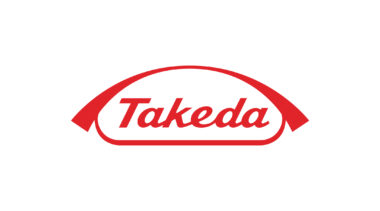- Clinical Midwifery Specialist and Researcher Madeline Hawke CMS/RN is asking pregnant women with high body mass index (BMI) how they want to be involved in their care.
- Women with high body mass index (BMI) (>30kg/m2) make up approximately one quarter of birthing women.
- Ms Hawke’s paper “Ask for my ideas first”: Experiences of antenatal care and shared decision-making for women with high body mass index, found that further work must be done to address the influence and impact of weight stigma on the care of women with high body mass index.
---------------------------------------------------------------------------------------------------
INTERVIEW OPPORTUNITY: Madeline Hawke is available for interview upon request. Contact Marianna Alepidis to arrange a time.
PHOTO: Available for download here.
--------------------------------------------------------------------------------------------------
Clinical Midwifery Specialist and Researcher Madeline Hawke CMS/RN is asking pregnant women with high body mass index (BMI) how they want to be involved in their care.
“We’re having so many conversations in the public sphere at the moment around birth trauma, and a lot of that comes down to women feeling disempowered in the birth space and not having their voices heard.”
Ms Hawke’s paper “Ask for my ideas first”: Experiences of antenatal care and shared decision-making for women with high body mass index, found that transparency regarding the rationale for recommendations from clinical staff is required, and further work must be done to address the influence and impact of weight stigma on the care of women with high body mass index.
According to the recently published Australia's mothers and babies report, 50 per cent of mothers are above the healthy weight range. Women with high body mass index (BMI) (>30kg/m2) make up approximately one quarter of birthing women.
“It’s about involving the woman in her care, and that is something that women really want. They don’t appreciate when clinicians make decisions without involving them, which sounds like something that we should all know, but actually in the history of medicine and the care that we’ve provided in hospitals, it is a new concept.”
When interviewing the women, Ms Hawke found three main themes arise; trust in the system, who takes the lead and defying disease.
“I talked to women about their experience of decision making, how they found the experience being in a larger body and anything that they wanted to share about the communication that they had with the clinician.
“The women were very gracious about the care that they received but when they recounted their experience, it didn’t sound like they had much of a role in decision-making. The women felt grateful for the limited role that they did have, which was surprising but there should be more expected of us as clinicians. There should be more expected of health services to provide that personalised care.”
Another factor that arose was how intersectionality affects shared decision-making.
“Initially, when I envisaged the study, I was thinking of clinical decision-making as a level playing field. But like all aspects of health, it’s not. Some people are coming into these conversations at a much greater disadvantage.”
“There are layered experiences that come from social determinants of health, women from lower socioeconomic backgrounds, or women who are culturally diverse may find shared decision-making more challenging for a multitude of reasons, not just related to their weight
Ms Hawke has already made strides in providing specialised care for pregnant women with a high BMI, establishing and now leading the Pregnancy Elevated BMI Antenatal Risk reduction and Lifestyle (PEARL) antenatal clinic.
The PEARL clinic is a unique service providing midwifery and medical continuity of care, prioritising shared decision-making for women in larger bodies.
“This was an amazing opportunity for me, establishing and now leading this clinic as the PEARL midwife. We’ve had such excellent feedback from the women involved and we’re always looking at ways to improve the service we provide.”
Contact details:
Marianna Alepidis
Media Officer
[email protected]
0437 875 825


